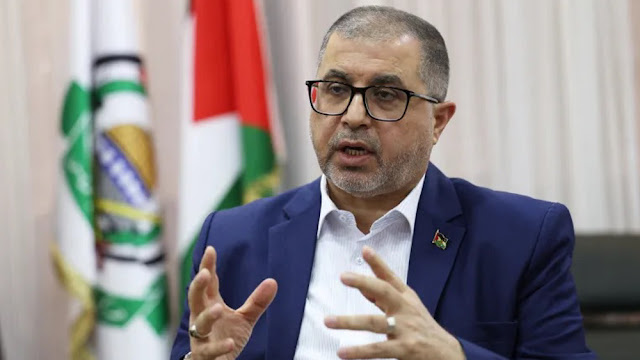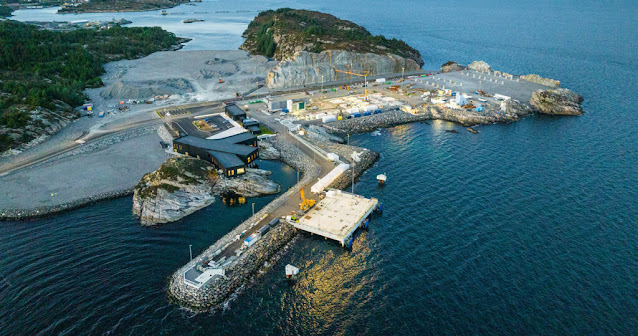GAZA CITY, Palestine – August 25, 2025 – A senior official of the Palestinian resistance movement Hamas has issued a scathing condemnation of Israeli Prime Minister Benjamin Netanyahu’s refusal to accept the latest ceasefire proposal put forward by international mediators, accusing him of deliberately stalling peace talks to protect his far-right cabinet and intensify the ongoing war in Gaza. Bassem Naim, a member of Hamas’s Political Bureau, made the remarks on Sunday, August 24, 2025, citing media reports that Israel rejected a partial deal in favor of a comprehensive agreement backed by the United States. The statement comes amid escalating violence, with Israel launching a new offensive to seize Gaza City, home to nearly a million displaced civilians, despite urgent United Nations appeals to halt operations amid catastrophic humanitarian conditions. This report provides an in-depth analysis of the ceasefire negotiations, Hamas’s accusations, Israel’s military actions, and the broader implications for the Palestinian people and the international community.
Hamas Political Bureau member Bassem Naim
The Ceasefire Impasse: Hamas’s Accusations Against Netanyahu
The ongoing conflict in Gaza, which erupted in October 2023, has reached a critical juncture, with mediators struggling to broker a ceasefire between Israel and Hamas. On Sunday, August 24, 2025, Bassem Naim, a senior Hamas official, accused Israeli Prime Minister Benjamin Netanyahu of obstructing peace efforts to safeguard his political position and appease his far-right coalition government. “Netanyahu is deliberately stalling the Gaza peace talks to protect himself and his far-right cabinet, and to escalate the war on the people of Gaza,” Naim stated, pointing to recent media reports indicating that Israel rejected a partial ceasefire deal proposed by mediators in favor of a comprehensive agreement with U.S. backing.
Naim emphasized that Hamas has not received an official response to its latest truce offer, nor has it been presented with a new proposal for a comprehensive deal. He stressed that the movement has demonstrated flexibility by accepting multiple ceasefire proposals, including a recent one facilitated by mediators in Cairo, but Israel has consistently rejected these offers. “We agreed to a partial deal, while we also expressed readiness for a comprehensive one; however, Netanyahu rejects all solutions,” Hamas said in a statement issued earlier that day. The statement further accused Netanyahu of approving a plan to occupy Gaza City, signaling his determination to block any ceasefire agreement and continue the military onslaught.
The mediators’ latest proposal, details of which remain undisclosed, reportedly addressed key demands from both sides, including the release of hostages held by Hamas and the withdrawal of Israeli forces from parts of Gaza. Hamas’s acceptance of the proposal, which met most of Israel’s demands as well as those of its primary ally, the United States, was seen as a significant step toward de-escalation. However, Israel’s immediate launch of a new offensive to seize Gaza City, a densely populated area sheltering nearly a million displaced civilians, has derailed hopes for peace and drawn widespread condemnation.
Senior Hamas official Mahmoud Mardawi echoed Naim’s sentiments, asserting that a comprehensive deal to end what he described as Israel’s “genocidal war” on Gaza was achievable, but Netanyahu’s insistence on continuing the military campaign was sabotaging negotiations. “A comprehensive deal is possible, but Netanyahu is deliberately obstructing the process,” Mardawi said. He accused the Israeli prime minister of prioritizing political survival over peace, noting that the far-right elements in his coalition, including National Security Minister Itamar Ben-Gvir and Finance Minister Bezalel Smotrich, have repeatedly opposed ceasefire agreements, advocating instead for the complete military subjugation of Gaza.
Israel’s New Offensive: A Humanitarian Catastrophe
Israel’s decision to launch a new assault on Gaza City, despite urgent appeals from the United Nations and humanitarian organizations, has intensified the already dire situation in the Gaza Strip. The offensive, which began shortly after Hamas accepted the mediators’ ceasefire proposal, targets a city that has become a refuge for nearly a million displaced Palestinians, many of whom have fled repeated Israeli bombardments since October 2023. Aid agencies have described the humanitarian conditions in Gaza as “unimaginable,” with starvation, disease, and destruction reaching catastrophic levels.
The United Nations Office for the Coordination of Humanitarian Affairs (OCHA) reported that Gaza’s civilian population is facing severe shortages of food, water, medicine, and electricity, with hospitals overwhelmed and infrastructure decimated. The blockade imposed by Israel has cut off essential supplies, exacerbating the crisis. According to OCHA, nearly 80% of Gaza’s population has been displaced at least once since the conflict began, with many living in overcrowded shelters or makeshift camps lacking basic amenities.
The new offensive has drawn sharp criticism from international humanitarian organizations. Médecins Sans Frontières (Doctors Without Borders) condemned the assault, stating, “The attack on Gaza City is a blatant disregard for civilian lives and international humanitarian law. Hospitals are barely functioning, and people have nowhere safe to go.” The UN’s special rapporteur on the occupied Palestinian territories, Francesca Albanese, called for an immediate halt to the operation, warning that it risks further escalating what she described as “genocide” in Gaza.
Since the onset of the war in October 2023, Israeli forces have killed at least 62,700 Palestinians, predominantly women and children, according to Gaza’s health ministry. Nearly three times that number—approximately 188,100—have sustained injuries requiring medical attention, overwhelming the region’s already strained healthcare system. The blockade has also severed access to food, water, power, and medicine, pushing Gaza to the brink of famine. The World Food Programme reported that 1.9 million people in Gaza are facing acute food insecurity, with children and the elderly particularly vulnerable to malnutrition.
Hamas’s Call for International Pressure
Hamas has placed significant blame on the United States for enabling Israel’s actions through its “unbridled support.” Bassem Naim called on Arab and Islamic countries to exert political, diplomatic, and economic pressure on Israel to force a change in its policies. “The United States’ unconditional backing of Israel’s aggression is a major obstacle to peace,” Naim said. “We urge our brothers in the Arab and Islamic world to take a stand and hold Israel accountable for its actions.”
The call for regional intervention reflects growing frustration with the international community’s response to the Gaza conflict. While countries like Egypt and Qatar have played a central role in mediating ceasefire talks, their efforts have been undermined by Israel’s rejection of proposals and the U.S.’s continued military and diplomatic support for Tel Aviv. The U.S. has provided Israel with billions of dollars in military aid since the war began, including advanced weaponry used in Gaza operations. Critics argue that this support has emboldened Netanyahu to pursue a hardline stance, disregarding calls for de-escalation.
Hamas’s appeal to Arab and Islamic nations also highlights the broader geopolitical dynamics at play. Countries like Saudi Arabia, Jordan, and the United Arab Emirates have faced domestic pressure to take a stronger stance against Israel, particularly in light of the humanitarian crisis in Gaza. However, their diplomatic relations with the U.S. and Israel, as well as regional rivalries, have complicated their response. The Arab League and the Organization of Islamic Cooperation (OIC) have issued statements condemning Israel’s actions, but concrete measures, such as economic sanctions or diplomatic isolation, have yet to materialize.
The Political Context: Netanyahu’s Domestic Challenges
Netanyahu’s rejection of the ceasefire proposal must be understood within the context of his domestic political challenges. The Israeli prime minister is facing mounting pressure from his far-right coalition partners, who have threatened to collapse the government if he agrees to a ceasefire or makes concessions to Hamas. Ministers like Ben-Gvir and Smotrich, who advocate for the annexation of Palestinian territories and the expulsion of Gaza’s population, have publicly opposed any deal that would halt Israel’s military operations. Their influence has constrained Netanyahu’s ability to negotiate, as he risks losing his coalition’s support and facing early elections.
At the same time, Netanyahu is grappling with domestic unrest over his handling of the war. Protests in Israel have intensified, with families of hostages held by Hamas demanding a deal to secure their release. The prime minister’s approval ratings have plummeted, and his Likud party faces challenges from opposition leaders like Benny Gantz and Yair Lapid, who have called for a more pragmatic approach to the conflict. “Netanyahu is caught between a rock and a hard place,” said Israeli political analyst Yossi Klein. “He needs to appease his coalition to stay in power, but rejecting ceasefire deals risks further isolating Israel internationally and prolonging the war.”
The U.S.’s role as Israel’s primary ally adds another layer of complexity. The Biden administration has repeatedly affirmed its support for Israel’s right to self-defense while urging restraint to minimize civilian casualties. However, critics argue that U.S. military aid and diplomatic cover have enabled Israel’s aggressive actions. The U.S. has vetoed multiple UN Security Council resolutions calling for an immediate ceasefire, drawing criticism from human rights organizations and Palestinian advocates. “The U.S. is complicit in the suffering of Gaza’s people,” said Palestinian activist Laila Hassan. “Its support for Israel undermines any claim to neutrality in the peace process.”
The Humanitarian Toll: A Crisis of Unimaginable Proportions
The war in Gaza, now in its 23rd month, has exacted a devastating toll on the Palestinian population. The Gaza health ministry’s figure of 62,700 deaths represents one of the highest casualty rates in modern conflicts, with women and children making up the majority of victims. The injuries, numbering nearly 188,100, have overwhelmed Gaza’s healthcare system, with hospitals like Al-Shifa and Nasser operating at reduced capacity due to shortages of medical supplies, fuel, and staff. Many injured Palestinians are unable to receive adequate treatment, leading to preventable deaths and long-term disabilities.
The blockade imposed by Israel has exacerbated the humanitarian crisis, cutting off access to essential supplies. The World Health Organization (WHO) reported that only 15 of Gaza’s 36 hospitals remain partially functional, with most lacking electricity and clean water. The blockade has also restricted humanitarian aid, with only a fraction of the required food and medicine reaching the population. The UN’s World Food Programme warned that Gaza is on the verge of famine, with 1.9 million people facing acute food insecurity. Malnutrition rates among children have skyrocketed, with thousands at risk of starvation.
The destruction of infrastructure has further compounded the crisis. Over 70% of Gaza’s housing units have been damaged or destroyed, according to OCHA, leaving millions homeless. Schools, mosques, and cultural sites have also been targeted, erasing much of Gaza’s social and cultural fabric. The psychological toll on the population is immense, with children and adults alike suffering from trauma, anxiety, and depression. “The people of Gaza are living through a nightmare,” said UNRWA Commissioner-General Philippe Lazzarini. “The international community must act urgently to stop this catastrophe.”
Regional and International Reactions
The escalation in Gaza has drawn widespread condemnation from the international community, with calls for an immediate ceasefire growing louder. The UN General Assembly passed a resolution in July 2025 demanding an end to hostilities and the lifting of the blockade, though it was non-binding. The International Criminal Court (ICC) is also investigating alleged war crimes committed by both Israel and Hamas, with potential indictments looming for senior officials. However, Israel’s rejection of the ICC’s jurisdiction and U.S. opposition to the investigation have hindered progress.
Arab and Islamic countries have expressed solidarity with the Palestinian cause but face challenges in translating rhetoric into action. Egypt and Qatar, which have mediated previous ceasefire talks, issued statements condemning Israel’s latest offensive but stopped short of imposing sanctions. Saudi Arabia, which has been pursuing normalization with Israel, faces domestic pressure to reconsider its stance in light of the Gaza crisis. “The Arab world cannot remain silent while Gaza burns,” said Jordanian activist Amina Suleiman. “We need bold action, not just words.”
Human rights organizations, such as Amnesty International and Human Rights Watch, have accused Israel of committing war crimes, including indiscriminate attacks on civilians and the use of starvation as a weapon of war. They have also criticized Hamas for launching rockets into Israeli territory, though the scale of Palestinian casualties far outweighs Israeli losses. “Both sides must be held accountable, but the asymmetry in harm is staggering,” said Amnesty’s regional director, Heba Morayef. “Israel’s actions constitute a grave violation of international law.”
The Path Forward: Challenges and Opportunities
The failure of ceasefire talks and the escalation of violence in Gaza City present significant challenges for achieving peace. Netanyahu’s rejection of the mediators’ proposal, coupled with his coalition’s hardline stance, suggests that a diplomatic resolution is unlikely in the near term. Hamas’s insistence on a comprehensive deal, including an end to the blockade and the withdrawal of Israeli forces, faces resistance from Israel, which demands the release of all hostages and the disarmament of Hamas.
The humanitarian crisis in Gaza demands urgent action. The UN and aid agencies have called for a humanitarian corridor to deliver food, water, and medicine, but Israel’s security concerns have hindered progress. The international community must prioritize civilian protection, including enforcing international humanitarian law and ensuring accountability for war crimes.
For Arab and Islamic countries, Hamas’s call for political, diplomatic, and economic pressure offers an opportunity to take a stronger stance. Measures such as suspending trade with Israel, imposing sanctions, or expelling Israeli diplomats could shift the dynamics of the conflict. However, regional rivalries and dependence on U.S. support may limit the willingness of some governments to act decisively.
The United States faces a critical decision point. While its support for Israel remains steadfast, growing domestic and international criticism could pressure the Biden administration to push for a ceasefire. A shift in U.S. policy, such as conditioning military aid on respect for humanitarian law, could incentivize Israel to engage in negotiations. However, domestic political considerations, including the influence of pro-Israel lobbying groups, may constrain such a shift.
Stakeholder Perspectives: Voices from the Ground
The crisis in Gaza has elicited a range of reactions from stakeholders, reflecting the complexity of the conflict. In Gaza, residents expressed despair over the failure of ceasefire talks and the new offensive. “We thought peace was possible, but now we’re facing another wave of destruction,” said Fatima Hassan, a mother of three in Gaza City. “We just want to live in safety and dignity.”
In Israel, opinions are divided. Some, like Tel Aviv resident Yossi Cohen, support Netanyahu’s hardline approach, arguing that Hamas poses an existential threat. “We can’t negotiate with terrorists who want to destroy us,” he said. Others, like protester Sarah Levi, demand a ceasefire to secure the release of hostages. “Netanyahu’s refusal to compromise is prolonging our suffering,” she said.
International leaders have also weighed in. UN Secretary-General António Guterres called for an immediate ceasefire, stating, “The people of Gaza cannot endure more suffering.” Egyptian Foreign Minister Sameh Shoukry urged both sides to return to the negotiating table, while Qatari Prime Minister Sheikh Mohammed bin Abdulrahman Al Thani emphasized the need for a comprehensive solution.
Policy Recommendations
To address the crisis and move toward a sustainable resolution, the following recommendations are proposed:
Urgent Ceasefire: Mediators, led by Egypt and Qatar, should intensify efforts to secure an immediate ceasefire, prioritizing civilian protection and humanitarian access.
Humanitarian Aid: The international community must establish a humanitarian corridor to deliver food, water, and medicine to Gaza, bypassing the blockade.
Regional Pressure: Arab and Islamic countries should impose diplomatic and economic sanctions on Israel to pressure it into accepting a ceasefire.
U.S. Policy Shift: The U.S. should condition its military aid to Israel on compliance with international humanitarian law, encouraging a return to negotiations.
Accountability Mechanisms: The ICC and other bodies should expedite investigations into war crimes, ensuring accountability for both Israeli and Hamas actions.
Conclusion
The refusal of Israeli Prime Minister Benjamin Netanyahu to accept the mediators’ latest ceasefire proposal has deepened the crisis in Gaza, with Hamas accusing him of stalling talks to protect his political position and escalate the war. The launch of a new offensive on Gaza City, despite UN appeals, has worsened an already catastrophic humanitarian situation, with 62,700 Palestinians killed and nearly 188,100 injured since October 2023. Hamas’s call for Arab and Islamic countries to pressure Israel reflects growing frustration with the international community’s inaction, particularly the U.S.’s unwavering support for Tel Aviv.
As Gaza faces unimaginable levels of starvation and destruction, the need for a ceasefire and humanitarian intervention is urgent. The failure of negotiations underscores the complex interplay of domestic politics, regional dynamics, and international complicity in perpetuating the conflict. The international community, led by the UN and regional powers, must act decisively to halt the violence, deliver aid, and hold all parties accountable. The people of Gaza, caught in the crossfire of a brutal war, deserve nothing less than a chance for peace and survival.








